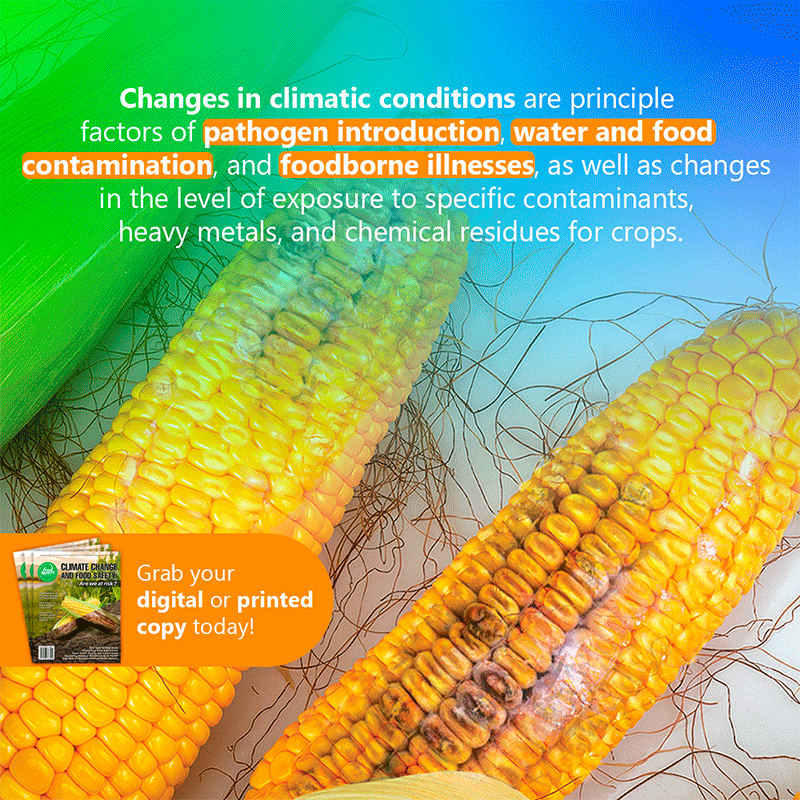Food Safety Amidst Climate Change (Excerpt)


“Climate change did not spare the safety of consumers from its effects. The safety of food has been compromised with incidents such as food becoming spoiled earlier than expected; fruits already becoming moldy a few days after purchase; and vegetables rotting faster than usual. These encounters are mostly due to poor storage conditions which are highly affected by changes in environment temperature.
Throughout the farm-to-form continuum, fresh produce is subjected to numerous opportunities for contamination due to a range of cultivation, harvesting, processing, storage, transportation, and handling activities which in the event of unfavorable conditions may lead to the presence of hazards. Meanwhile, changes in climatic conditions are principal factors of pathogen introduction, water and food contamination, and foodborne diseases, as well as changes in the level of exposure to specific contaminants, heavy metals, and chemical residues for crops.”
Excerpt from Ms. Roxette Anne Quindala’s article, “Food Safety Amidst Climate Change: How the Bureau of Plant Industry is Ensuring Safe Food,” published in the 10th volume of the Food and Safety Trends PH Magazine (FSTM). Find out more about the responsibilities played by governmental organizations in the food supply chain, and the multiple effects on food safety that climate change is bringing when you get a copy of the latest volume of FSTM!
Subscribe now and request a printed copy: https://docs.google.com/.../1FAIpQLSehTn-B7F8i.../viewform
Purchase a digital copy: https://fliphtml5.com/homepage/pclqq
For advertising and subscription inquiries, contact us at (+632) 8.470.2325 or send us an e-mail at [email protected].
#ClimateChange #FoodSafety #FoodSafetyTrendsPHMagazine #FSTM #FoodSafetyLifeMatters #GlenwoodTechnologies #Glenwood





